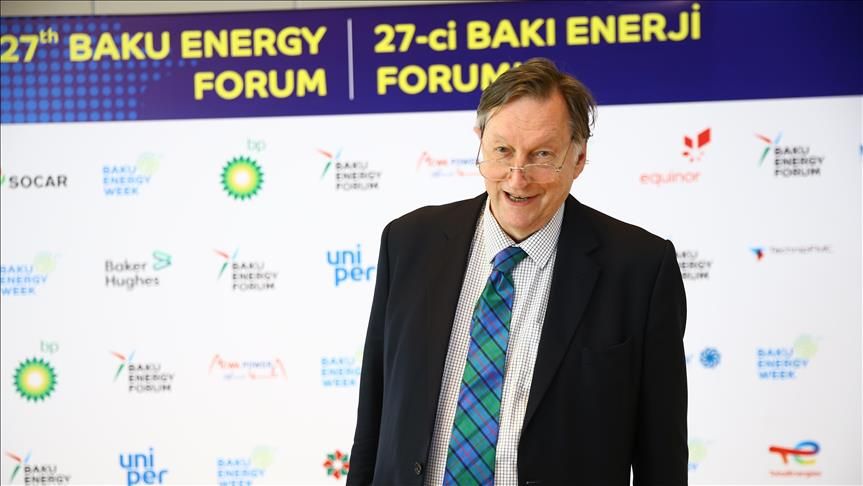As reported by bp's vice president for wells in Azerbaijan, Georgia, and Türkiye, Jim O'Leary, it might take up to 12 months to assess the gas volumes in the deep layers in the Azeri-Chirag-Guneshli field block (ACG) in the Azerbaijani sector of the Caspian Sea.
"We hope that there are good reserves. We are hopeful for that. That is why we will drill two production wells," Jim O'Leary said.
According to him, based on the assessment of the data received from the first well and another well to be drilled, it will be possible to estimate approximately how many gas reserves ACG has in the deep layers. This process might take up to 10-12 months.
It should be noted that on February 7, 2023, drilling of a new assessment well was commenced in order to collect information about the deep gas layers under the operational oil field in ACG, and that well was completed in April last year.
In addition, in the second half of this year, bp plans to start drilling the first production well within the framework of the development of deep gas layers in ACG. The first gas is expected to be extracted at the beginning of next year.

Speaking to Azernews on the issue, John Roberts, Energy Security Specialist at Atlantic Council, highlighted the significance of assessing gas volumes in the deep layers of the Azeri-Chirag-Guneshli (ACG) field block in the Caspian Sea.
“The significance of assessing gas volumes in the deep layers of the Azeri-Chirag-Guneshli (ACG) field block in the Caspian Sea lies in its potential to unlock previously untapped resources. These deep layers represent a critical aspect of the field's reservoir, and accurately assessing the gas volumes therein is essential for optimising production strategies and maximising the economic benefits for stakeholders involved.”
He answered the question, “What factors contribute to the estimation process of gas reserves in the deep layers, and why does it take up to 12 months?” in this way.
“Several factors contribute to the estimation process of gas reserves in the deep layers. These include the geological complexity of the reservoir, data acquisition challenges, and the need for comprehensive analysis and interpretation of seismic data. Additionally, the estimation process involves rigorous modelling and simulation techniques. The lengthy duration, up to 12 months, is primarily due to the meticulousness required in integrating various data sources and conducting thorough evaluations to ensure the accuracy and reliability of the estimates.”
According to John Roberts, the drilling of production wells plays a crucial role in the overall assessment of gas reserves in the ACG field block.
“By drilling into the deep layers, operators can directly access the reservoir and gather essential data on its characteristics, such as pressure, composition, and flow rates. This information is invaluable for refining reservoir models, validating reserve estimates, and informing production strategies.”
An international expert emphasised that the expected outcomes or projections for gas extraction from the deep layers in ACG are contingent on various factors, including the results of drilling operations and reservoir performance.
“Nonetheless, based on preliminary assessments and exploration activities, there is optimism regarding the significant potential for gas extraction from these deep layers. The timeline for drilling the first production well will provide crucial insights into the feasibility and productivity of extracting gas from these reservoirs.”
“The assessment of gas reserves in ACG aligns with global trends in gas demand and geopolitical uncertainties by contributing to diversifying energy supplies and enhancing energy security. As the world transitions towards cleaner energy sources, natural gas continues to play a pivotal role in meeting energy needs while reducing carbon emissions. Moreover, the development of new gas resources such as those in the ACG field block can mitigate geopolitical risks associated with over-reliance on specific energy suppliers or transit routes, thereby enhancing energy resilience on a global scale," John Roberts added.